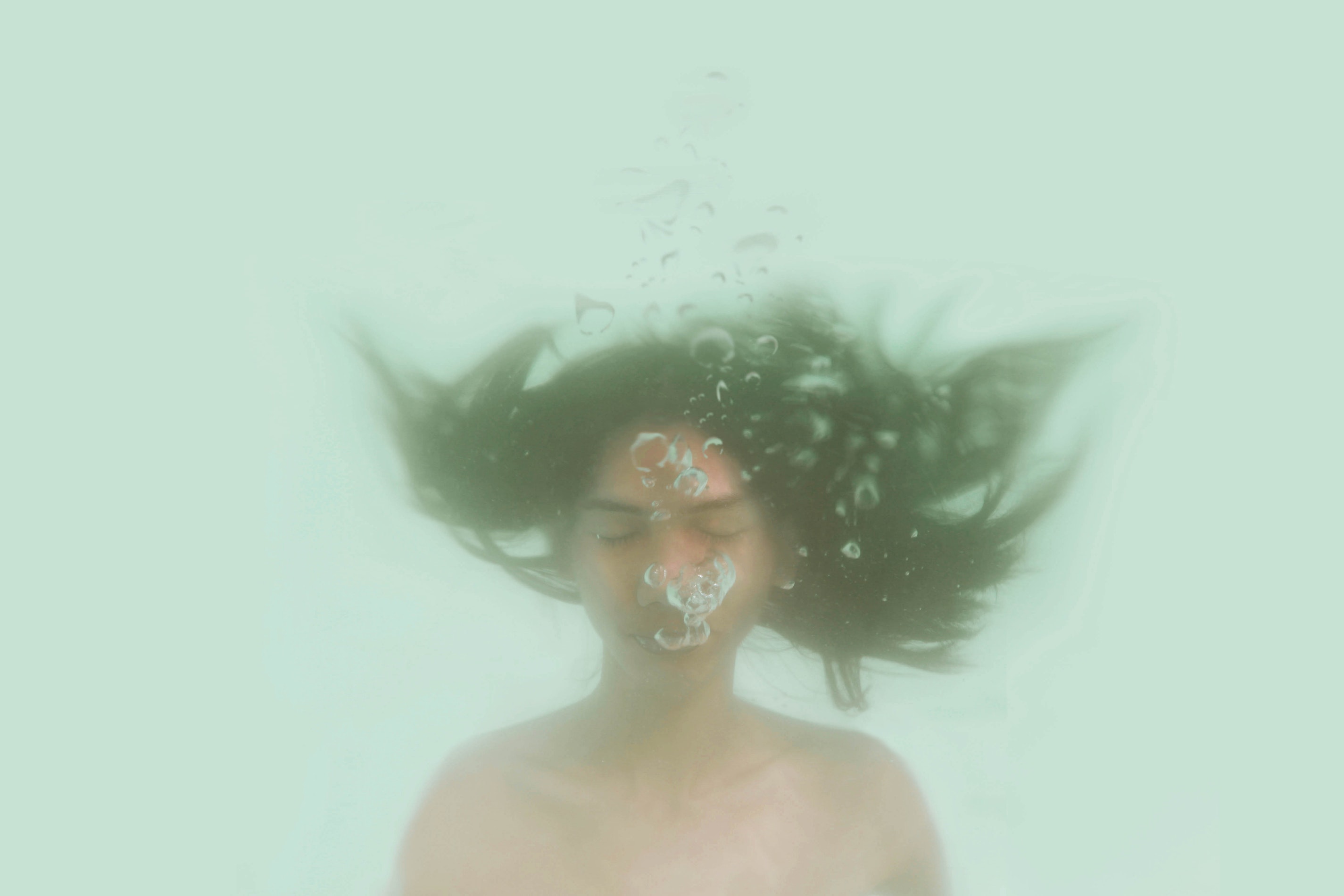It’s 2015, and I’ve voluntarily landed myself in a very uncomfortable situation: a counselling session—my first and last; the very thing that will seal my disdain for shrinks, although this stranger isn’t strictly one.
A counsellor! How tame a name for a person who’s supposed to offer me logical solutions, not pills and a diagnosis, to a disorder that consumes me. Anxiety is a scary beast, but how can I explain why walking down the street alone reduces me to a mess of splayed nerves? Or why even asking a question requires some kind of courage?
And there’s the other thing I detest: unpacking my emotions, and having a stranger dissect them in an attempt to fix my mind.
The counsellor explains now, that upon feeling discomfort in any social situation, my mind defaults to its primitive reflexes—fight, flight, or freeze. In my case, it’s often the latter. I struggle to breathe and speak. My mouth dries out, I begin perspiring profusely in (fortunately) concealed places, and am overcome by the wild desperation to escape. For the rest of the session, he doles out textbook suggestions: slow my breath, count backwards from a hundred, focus on a faraway spot to calm the mind.
I sit in passive silence, but by the end of the hour, I’ve concluded two things. One, that despite his best attempts, the dude doesn’t have the slightest clue what an anxiety disorder actually encompasses. Two, there’s no way in hell I’ll be returning for a follow-up appointment.
Determined to reset my mind, I turn to mantras and a kindness jar, which holds my chronicling of the positive parts of my day on Post-It notes.
But of course it doesn’t work. I recoil into the same state of lucid dreams, lethargy, and panic attacks.

Perhaps growing up in a typical Asian household guarded by assumptions and rules fuelled my anxiety. Particularly, the tumultuous, awkward adolescent years shaped my mindset. Never mind the misplaced hairs, bumps, and strange bodily fluids I struggled to comprehend; around the time I was 14, I began shutting everyone out, friends and family included. This meant silences in long stretches from me, which befuddled my relatives.
“What happened to you? You used to be so talkative,” was a refrain I heard far too frequently.
While it’s hardly uncommon for adolescents to shut their parents out, I felt painfully alone in the realisation that I was could no longer carry or start a conversation without feeling extraordinarily self-conscious. At home, there were no sit-down talks to ask if I was okay, only demands for an apology if I snapped or offered curt retorts.
I now realise these were disguised as expressions of concern, but my parents’ non-confrontational approach—the idea of rejecting a glaring problem and instead plying me with food and care, in hopes that I’d open up—didn’t work. Essentially, they gave me the space and quiet I demanded, putting it down to teenage angst, while making it clear I was never to shut my bedroom door until bedtime.
Without filling those holes with proper conversation, I created assumptions about their lack of care, and in my alienation began to regard my fear of speaking up as a bad thing. Why else would I be questioned for not being as vocal as I once had been?
This sudden and foreign self-consciousness—of my body, the way I looked, and things I said—took the upper hand, eventually leading to suicidal thoughts.
My friend and I, anomalies next to our (mostly) happy classmates who shared a curious newfound bond in growing up, would go to the highest floor of HDB blocks and ponder plunging to our deaths. We acted as enablers for the voices in our heads, and each other. But anxiety stopped me from acting on my rashest impulses.
I fear hurting the ones I care deeply about, and essentially function as a people-pleasing contradiction: I struggle on occasion with saying no, beat myself up for days over these instances, yet disagree fervently when something doesn’t sit with me.
Let it be known that while often anxiety and depression are correlated, it doesn’t mean anxiety causes depression, much less leads to it. Just as everyone is wired differently, so too are the ways in which thoughts are processed and dealt with.
As practised as I’ve become in maintaining a veneer of calm while in public, occasionally something slips. I forget how to walk normally in crowded spaces, and struggle to swallow or speak. My motor skills acquired as a young child become as foreign as the faces around me. With someone familiar by my side, though, this hyperawareness of my surroundings dissipates, and I feel significantly calmer and more human.

For someone so accustomed to focusing on negative thoughts and memories, it hardly seems the case.
To start, reflecting on the best aspects of a day requires serious work. Social events and presentations are things to be avoided. Staying sane on the train without registering and analysing every micro-expression aimed my way takes immense effort. Excessive, irrational fears about unlikely scenarios are kept on loop in my brain, like slow-burning fuel to feed yet another panic attack or meltdown. As much as I’ve become acutely aware of factors that cause me anxiety, actually keeping it in check is a whole other ball game.
And therein lies the problem: that the lines seem greatly blurred between having a mood disorder and being, well, anxious. Around me, everyone seems anxious; sad and unhappy, they express these emotions in person, on Instagram, or in Facebook posts. Friends are fraught with worry over not meeting work deadlines, finances, a family member’s ailing health, waning relationships, the demands of everyday life. To be sure, there’s a lot to be worried about.
Yet having the perceived severity of a mood disorder reduced to simply a feeling—“I swear I got anxiety when my boss confronted me!”—seems insensitive, and frankly, irks me.
Experiencing anxiety is an impermanent, natural reaction to inevitable changes or situations that induce temporary fear or stress. It is normal, and very much a part of being human.
Having anxiety (or an anxiety disorder) is an entirely different pill to swallow. Functioning becomes a struggle on certain days, because the weight of life and its demands are just somehow, unexplainably overwhelming.
But who’s to say that the people around me aren’t themselves suffering varying states of helplessness of the mind; ones that run on an unhealthy cycle of self-doubt and magnified fears?
I am, myself, an undiagnosed social anxiety sufferer. Or, if you read it the other way, a self-diagnosed social anxiety sufferer. Obviously, this lessens its weight, though it seems ludicrous to pay an exorbitant amount just to officiate a condition I’d rather not declare in job applications.
Being able to attach my daily struggles to a term—a disorder I’m not alone in—has helped. For the most part, though, I remain fraught with worry over being caught out one day for not behaving or speaking in a socially acceptable manner.
It seems timely then that I recently learned of sensory overload from a friend, and the sensations that come attached to it. It’s not unlike hyperawareness, in which lights and ordinary sounds, like the clinking of utensils at mealtime, struggle to be processed by the brain.
It’s also exactly why, whether at a social event or in a supermarket, I feel jumpy at repetitive noises, struggle to maintain a conversation because my mind ceases to distinguish the buzz of voices from a single voice; startling when anyone so much as brushes my arm while walking past.
While I can’t say for sure that these experiences are pegged to sensory overload per se, it’s clear I’ve developed an immense fear of social situations and—cherry on top!—being alone. Apparently, my brain just wasn’t wired to like either option. Instead, I’m hounded in my sleep by irrational scenarios that knock me right awake. I end up an exhausted mess as a result, scrubbed of the desire to even be alive as I wonder why I can’t just be normal.

Between then and now, I’ve tried and failed to secure actual help on various helplines, with counsellors few and far between, and wait times stretching up to two months for a counselling session. At the end of it, my best solution is sucking it up and putting on my best poker face, even if I feel like I’m about to combust from the weight of strangers’ lurking gazes or a conversation with an acquaintance.
Oddly, I don’t view antidepressants as a solution. Or perhaps I don’t want my moods to be ruled by them, as I’ve heard from friends whose medications have left them feeling numb and blank. And therein lies the irony: in my struggle to keep anxiety at bay, I’d rather feel every emotion and fear than feel nothing at all.






